Friday May-30 2025 16:14:47
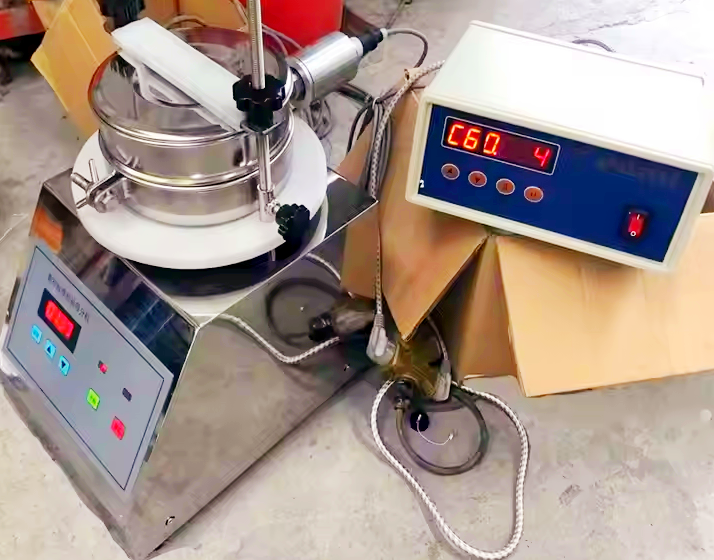
Millet sand is a special material with unique characteristics. Its main components include soy fiber, corn starch, guar gum and millet. It is in a broken shape of 1-3mm, with a water absorption speed of 5 seconds, an ash content of only 1%, a moisture content of less than 10%, a deodorization rate of up to 99%, and a bulk density of 600 g/cm3. Millet sand ultrasonic test sieve is mainly used for precise analysis of the particle size composition of millet sand particles, especially for millet sand with a particle size between 75μm and 300μm. By superimposing high-frequency ultrasonic vibration on the traditional screening, the screen can be effectively prevented from being blocked, and the millet sand can be efficiently and precisely divided into 2-8 particle segments according to the particle size, and the particle size analysis and screening and grading of the millet sand can be accurately realized.
Millet sand ultrasonic test sieve
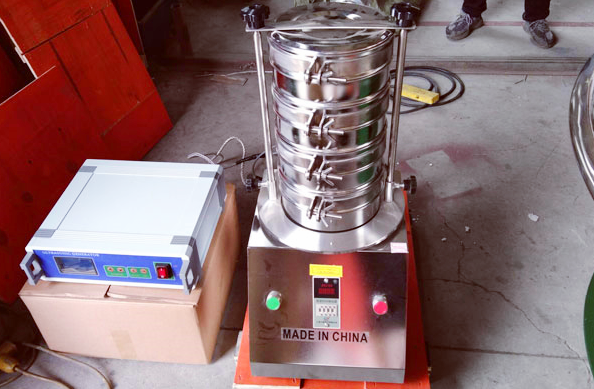
Millet sand ultrasonic test sieve is mainly used for millet sand particle size analysis in the laboratory. The purpose is to accurately separate and grade millet sand according to particles of different sizes to determine its particle size distribution. It supports fine powder materials above 400 mesh and is suitable for fine particle size analysis. The process is intermittent. The processing capacity is small and it is mainly used for sampling and analysis. The test sieve is an analytical instrument for laboratory use, focusing on the determination of accuracy and particle size distribution, and the processing capacity is small.
Rice sand ultrasonic screening machine
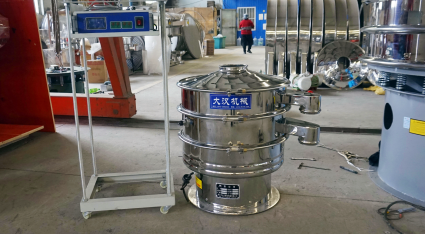
Millet sand ultrasonic screening machine is mainly used for large-scale screening and impurity removal of millet sand in industrial production. The purpose is to separate millet particles of different sizes and remove impurities (such as debris, dust, etc.) to improve the purity and quality of millet. The screening accuracy can be increased by 1-100%, the output can be increased by 1-10 times, and it supports 24-hour continuous operation. The effective screening diameter can reach φ1390mm, which meets the needs of industrial production. The screening machine is a production equipment for industrial production, focusing on efficiency and output, and is used for material purification or classification.
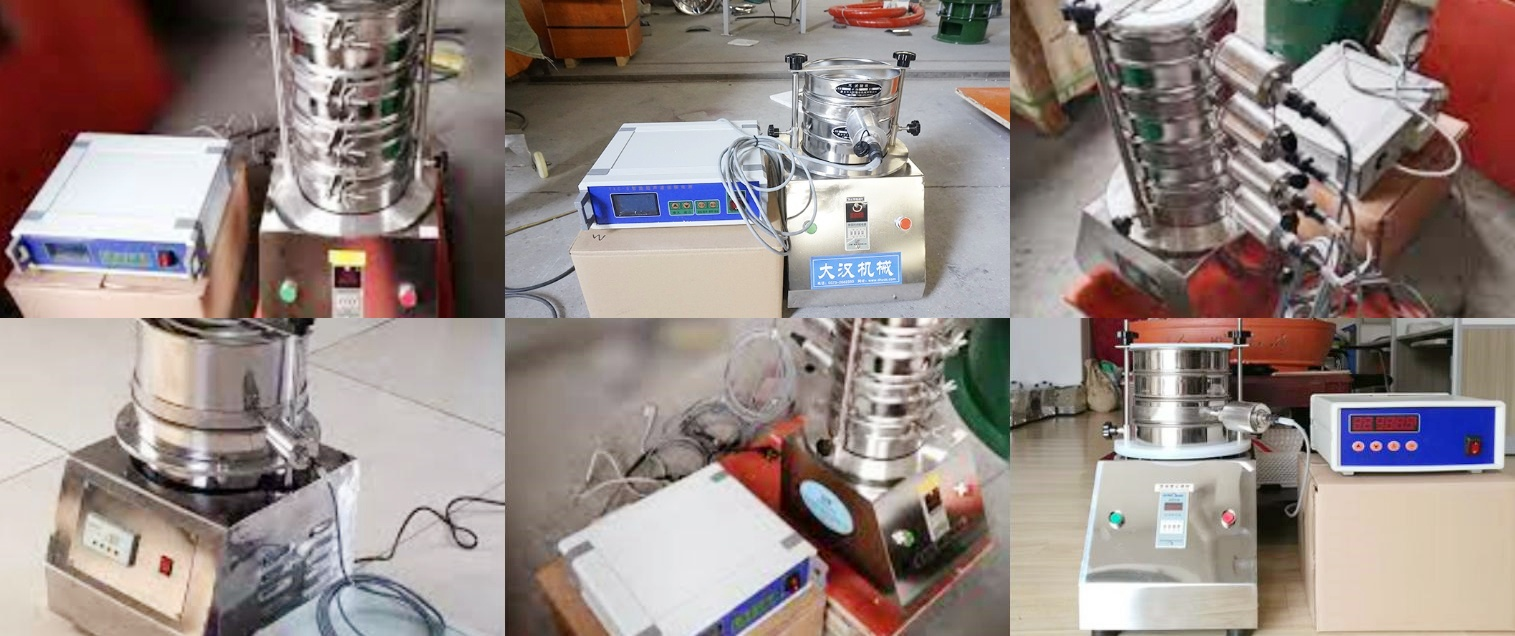
If you mainly conduct small-batch laboratory analysis and pursue accuracy: you can choose an ultrasonic test sieve with a diameter of 200mm. Generally speaking, conventional ultrasonic test sieves can screen 80-600 mesh materials. According to the particle size range you need to analyze, select the appropriate mesh combination and the corresponding number of sieve frames. Pay attention to whether the performance of the ultrasonic generator is stable and reliable.
If you need a slightly larger processing volume, or have specific automation requirements: you can consider models with a diameter of 600mm or 800mm, with 1-8 layers of screen surface, which can meet the needs of different particle size classification to a certain extent. Choose models with timing or more advanced control functions, with a larger effective screening area and more processing volume per unit time.

|
Mesh number (mesh) |
Corresponding aperture (μm) |
Applicable instructions |
|
20 mesh |
850μm |
Coarse particle level initial screening, remove large particles or impurities |
|
40 mesh |
425μm |
Coarse and medium particle classification |
|
60 mesh |
250μm |
Commonly used for medium particle size millet sand screening |
|
80 mesh |
180μm |
Fine grain millet sand screening, often used for finished product testing |
|
100 mesh |
150μm |
Fine screening, suitable for high purity requirements |
|
120 mesh |
125μm |
Fine classification or powder screening |
|
140 mesh |
106μm |
Ultra-fine millet sand classification, with ultrasonic anti-blocking |
|
200 mesh |
75μm |
Powder level screening, detect micro powder content |
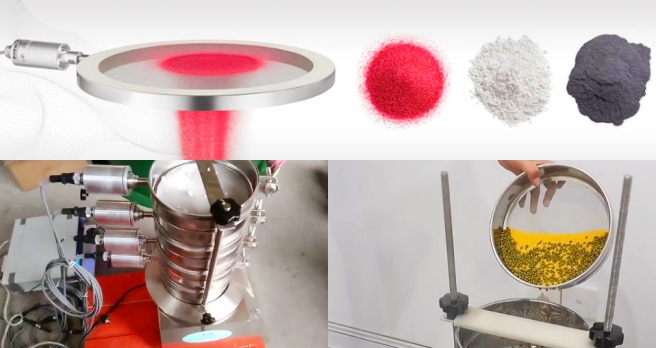
The core use of millet sand ultrasonic test sieve is to accurately determine the particle size distribution of millet sand, which is crucial in multiple application scenarios. In the food processing industry, especially for enterprises producing millet powder, millet paste and other products, it is necessary to strictly control the fineness of millet sand to ensure the taste and quality of the final product. The ultrasonic test sieve can accurately analyze the coarseness of millet sand, determine whether it meets the requirements of the production process, and avoid product quality problems caused by uneven particle size.
In the field of agricultural research, researchers may need to analyze the grinding characteristics of different varieties of millet, or evaluate the effects of different crushing processes on the particle size of millet sand. At this time, the ultrasonic test sieve can provide accurate particle size classification data and provide a reliable basis for scientific research. In the production of some special foods or health products, such as infant food, the ultrasonic test sieve can accurately screen out fine powder that meets the requirements. In feed production, if millet is used as raw material, it may also be necessary to control the particle size of millet sand to improve the digestion and absorption rate of animals.
Millet sand ultrasonic test sieve plays a key role in various scenarios where the particle size composition of millet sand needs to be accurately grasped with its high-efficiency anti-blocking net and high precision. It combines ultrasonic vibration technology to effectively separate fine particles, especially those materials that are difficult to handle with traditional screening methods, making it an ideal choice for fine powder screening.What is the wet sieving process?
Wet sieving process is a sieving process assisted by a liquid (usually water or a solution containing a dispersant) to more effectively...
Fines content tester can be defined as an instrument used to quantitatively determine the content of fines powder components of a specific fineness...
Micro silica powder particle size analysis test sieve
Micro silica powder, also known as silica fume, is an ultrafine active silica material with a very small particle size, usually between 0.1-0.3 microns, which...
Agricultural gruesos Test sieves
Agricultural gruesos test sieves are experimental equipment used for particle size analysis, grading and testing of agricultural soil, gruesos...
Stainless steel frame and woven cloth
The test sieve is a laboratory equipment used for particle size analysis. Its core components usually include a stainless steel frame and woven cloth (also called a sieve)...
0.5mm stainless steel soil sieve for lab testing
0.5mm stainless steel soil sieve for lab testing is a screening tool commonly used in soil particle analysis. The sieve mesh has a sieve mesh size of 0.5 mm...
May 30, 2025
Millet sand ultrasonic test sieve
Millet sand ultrasonic test sieve is suitable for fine powder materials above 400 meshes, which can a...
May 29, 2025
200 micron brass mesh soil sieve set with frame
200 micron brass mesh soil sieve set with frame is a soil sieving tool with a pore size of 200 micron...
May 28, 2025
0.5mm stainless steel soil sieve for lab testing
0.5mm stainless steel soil sieve for lab testing refers to a stainless steel soil sieve with a sieve ...
May 28, 2025
portable field soil sieve kit for geotechnical engineering
Portable field soil sieve kit for geotechnical engineering is a lightweight tool designed to quickly ...
![]()
Then we look forward to hearing from you
Contact Us
Industrials
Yanjin county forest park gate to the west 1000 meters north road sitemap
